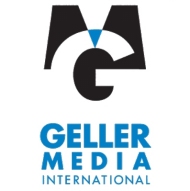From Don’t Panic Management’s Lee LeBreton.
There are all kinds of ways to be a great podcast host.
No, you don’t need to have the megawatt extroversion of a late-night TV personality.
You don’t need years of experience as a hard-boiled investigative journalist.
All you need is to be able to greet your guest and audience with the best, most authentic version of yourself.
Set yourself up for success using these simple strategies for creating engaging podcast interviews.
- Find Your Software Soulmate
Today’s podcasters have an abundance of podcasting tools from which to choose. They also love to debate which of the most popular options—which include Skype, Zencastr, Zoom, and others—is objectively the best.
In reality, the “best” podcast interview recording software for you is the one that balances audio quality and ease of use. Some podcasters prefer Zencastr’s multi-track recording feature, some prefer to combine Zoom with Camtasia’s recording capabilities, and others value the ubiquity and familiarity of Skype. Whatever minimizes friction between you, your guest, and your production team (which may also be you!) while meeting your quality standards is your software soulmate.
- Expect the Unexpected
Capturing clean audio from two different locations simultaneously isn’t foolproof, of course. But there are several preparatory steps you can take to mitigate recording hiccups.
Start by communicating your recording guidelines to your guest in advance of the interview: find a quiet indoor location, use a stable internet connection, silence devices, avoid speakerphone, etc. Yes, your guest is being generous with their time, so you’re right to think twice before demanding they fill out a five-page pre-interview survey and learn a new software platform just to get on the phone with you. But they won’t consider you a tyrant for requesting basic etiquette.
Have a software backup at the ready (see above for a few popular options). Be on the lookout for interruptions that require a quick reset versus what can be solved during editing. Persistent static or clicking can be a serious challenge to edit out, whereas word fumbles or passing sirens are relatively easier to remove.
- Get Your Nancy Drew On
Reading a first date’s CV before meeting for coffee would be pretty creepy. Researching your podcast guest, on the other hand, is an essential part of being a great podcast host!
Make sure you’re clear on the basics, like the correct pronunciation of their name, job title, pronouns, etc. Be familiar with their recent work and background—asking for a short bio can help with this. And though we said earlier that a five-page pre-interview survey may feel off-putting, a shortlist of questions is a great way to spark interesting talking points.
- Nurture That Rapport
A warm, easeful rapport between guest and host is a major key to podcast success. You don’t need a longstanding relationship with your guest to create that ease—even small points of connection can help you both relax and deepen your conversation. As you research your guest, look for shared points of view, passions, or points in your origin story that might offer these opportunities to connect.
Between logging on to the call and kicking off the interview, you may also want to spend a minute or two loosening up by chatting casually (rather than talking shop) with your guest. Remember that our ears pick up all kinds of auditory cues in human speech, including whether or not the speaker is smiling, and listeners will detect if you’re stiff or relaxed.
- Create Your Hiking Map
Sure, many podcast hosts conduct interviews without any written outline. A few prefer the opposite: sticking to a specific list of questions and deviating as little as possible. Most successful beginning podcasters, however, will avoid these extremes.
Consider your interview guide less like a linear outline and more like a hiking map. Unlike an outline, a map allows for tangents and alternative conversation routes. This approach allows you to stay present with your guest and embrace opportunities to riff or go deeper while still keeping you on task.
- Push for Specifics
Details make an interview sparkle. Podcast guests speaking on their area of expertise may be so used to operating at a high level of fluency with their subject matter that they forget to offer specifics. It’s your job to prompt them to get concrete.
Stay alert for opportunities to jump in and ask for a recent example of the trend they just mentioned or a brand that exemplifies the concept they just referenced. Ask for their favorite tools and strategies for doing what they do. These details will help your episode stand out, rather than rehashing the same talking points your guest has touted all over the web.
- Make Your Podcast Interview Process Repeatable
Why reinvent the wheel each episode? Turn the emails and outlines you find yourself recreating over and over again into templates. When it’s time to prep for a new guest, simply customize that form email, refresh that interview map, and revisit that library of favorite questions.
These resources and workflows will also make it even easier to delegate these nitty-gritty production tasks when and if you decide to bring on a helping hand. And what post about podcasting wouldn’t be complete without mentioning that several of us here at Don’t Panic are expert podcasting sidekicks.
While you won’t find a “hack” to nailing an interview every time, you can become a more engaging interviewer with practice. Commit to leveling-up your host technique using one (or more!) of these tips.
Unofficial bonus tip: Set yourself a reminder to listen back ten episodes from now to appreciate how your skills have developed—then celebrate!
For more from Lee LeBreton:
https://www.dontpanicmgmt.com/author/lee-lebreton/
